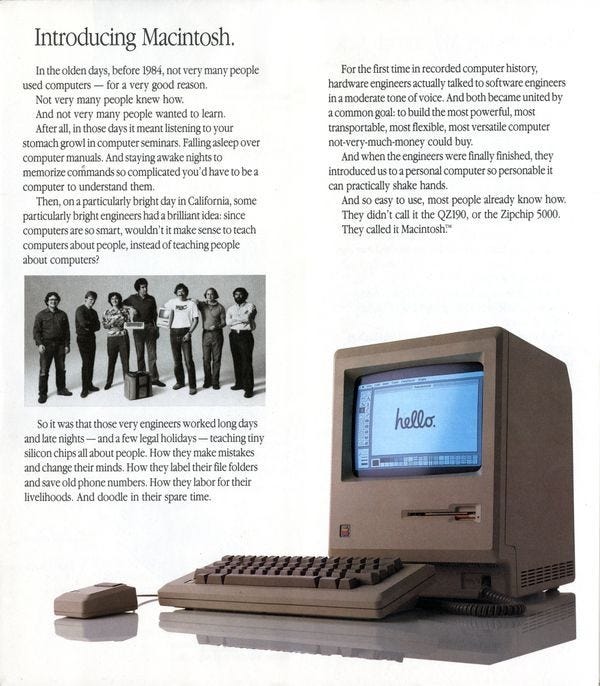The most powerful AI models today are trapped behind an interface that most people can't effectively use: the prompt. While companies race to build increasingly powerful AI models, they've overlooked a fundamental truth: most people don't know what to ask for, even when standing face-to-face with infinite possibilities. We've created digital genies that can grant any wish, but we're still expecting users to master the art of wish-making.
This challenge became clear to me recently when I was visiting a museum on a topic I knew very little about. When a helpful guide offered, "Let me know if you have any questions!" I found myself replying with the reflexive "I'm good, thanks!" despite being deeply curious about the exhibit. The truth was, I knew so little that I couldn't even formulate my questions. Had the guide simply started sharing information about the exhibit, I would have been an engaged listener.
This same pattern played out during my time volunteering at the Computer History Museum. We had a humanoid robot equipped with ChatGPT, and visitors would approach it with visible interest – only to freeze up when faced with the open-ended possibility of conversation. Most could only manage a tentative "Hi." Children, who typically embrace new technology, often stood back, intimidated by the need to initiate interaction.
As someone who has worked in both journalism and venture capital – two professions where people ask good questions for a living – I can attest that effective questioning is a specialized talent. A VC needs deep domain knowledge to probe an entrepreneur's business model. A journalist must conduct extensive background research to know which sources might hold specific pieces of information. Yet today's AI interfaces expect every user to be an expert interviewer.
Apple's original Macintosh advertisement (see below) posed a revolutionary question: "Wouldn't it make sense to teach computers about people, instead of teaching people about computers?" Today, we're doing the opposite: teaching people about AI through "prompt engineering" – a fundamentally anti-human approach.
Consider how the mobile internet solved a similar challenge. Facebook pioneered the "feed," which TikTok later perfected: open the app, and content immediately starts playing. Users communicate their preferences through simple swipes – no complex queries required. It's called "mindless scrolling" precisely because it demands minimal cognitive effort.
The personal computer revolution itself was driven by interface innovations. The graphic user interface (GUI) and mouse replaced cryptic command lines, transforming computers from specialized scientific tools into accessible personal devices. Similarly, the iPhone's revolutionary touchscreen redefined our relationship with mobile technology.
In contrast, today's AI products demand that users craft detailed prompts, provide extensive context, upload documents, and often assign specific roles to the AI. This cognitive overhead is simply too high for mainstream adoption.
The underlying AI models are already powerful enough for most daily use cases. What we need now is a UI revolution – moving beyond the chatbot paradigm to interfaces that make AI's abundant intelligence truly accessible to everyone. The next breakthrough in AI won't be about making models more powerful; it will be about making them effortless to use.



This is a great take. Recently I was hanging out with a journalist friend and some others. I saw first hand how they got places I couldn’t get— I consider myself good at questions, but their line of questioning was remarkable to witness.
If the opportunity is closing the gap between people and new insights with computers the solutions that immediately pop out out are
• educate the computer on the person (ChatGPT is trying this with memory, context windows across chats)
• computer prompts the person based on environment/context
• personalized computers that learn (think autofill, text autocomplete, I think apple intelligence is trying to do this and I think mfst is trying to move copilot this way by training on available enterprise data)
One thing I like to ask chat LLMs is
• what am I missing
• what haven’t I considered
• what might be wrong here
• what are other perspectives
• tell me why you have these thoughts
• who does this response serve or harm
Inspiring Sharing!Like Amanda Asekll said she hopes Claude will be like a traveler who communicates with people from all over the world. How to enable people from different backgrounds to truly participate in the AI lifestyle is the direction of our efforts!